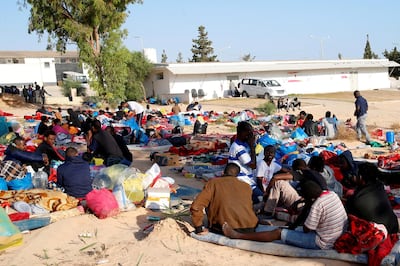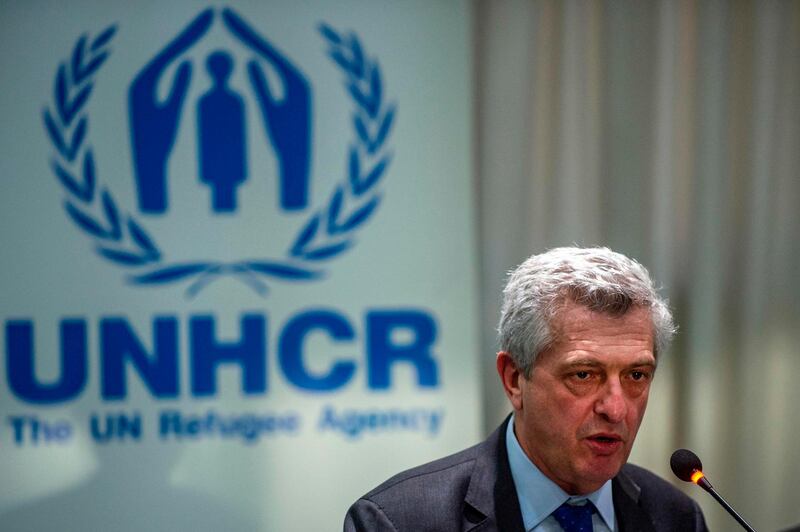The United Nations High Commissioner for Refugees (UNHCR) agency has rejected claims it was “starving” migrants out of a detention centre in Libya but confirmed it would cease providing food at the facility next year.
The UNHCR said it would "phase out" catering at the Gathering and Departure Facility (GDF) by the end of the year, in a statement issued late on Thursday after the The Guardian published an aid worker's claim that the refugee agency was trying to force migrants to leave by "deliberately withholding aid to put people under pressure".
The aid worker added that hundreds of those at the detention centre in Tripoli “have apparently been without food for weeks”.
“They’re just trying to starve them to motivate them to leave,” the aid worker said.
Responding to the allegation, UNHCR chief Filippo Grandi said: “I find that accusation offensive”.
"I don't know where you read that report. Us, starving refugees and migrants in Libya? When my colleagues, day in, day out, risk their lives to access people that are often detained by criminal gangs?" he said.
The refugee agency said it was instead boosting its assistance to migrants living in urban areas in Libya because the situation at the centre had become "unsustainable".
The facility, nicknamed the Hotel GDF by its inhabitants, opened a year ago as a transit centre for the most vulnerable refugees and asylum-seekers, who were destined to be transferred out of Libya.
UNHCR said it had become "severely overcrowded" since July when hundreds of people arrived after the detention centre at Tajoura was hit by an airstrike.

Around 400 people, including 100 children, had come from the Abu Salim detention centre in the south of the country, and another 200 from urban areas, meaning that the centre with a capacity to host 600 people was now hosting nearly double that number.
The refugee agency said the overcrowding was hampering its "ability to evacuate the most acutely vulnerable refugees, for whom solutions outside of Libya have been found, out of detention centres and to safety".
UNHCR's chief of mission for Libya, Jean-Paul Cavalieri, stressed in the statement that the agency welcomed that asylum-seekers and refugees had been released from detention by Libyan authorities, and said it would expand its programme supporting them "in urban areas so that they can get the help they need."
"We hope that the GDF will be able to return to its original function as a transit facility for the most acutely vulnerable refugees, so we are able to evacuate them to safety," Mr Cavalieri said.
He added that the facility had, in effect, become an "open centre" for urban migrants and asylum-seekers, and said the agency would continue to provide medical assistance and sanitation services there "for the foreseeable future, based on available resources".
According to the agency, some 40,000 refugees and asylum-seekers are already living in urban areas in Libya.
"Those with a valid claim for international protection are being offered the urban assistance package to help them move out, including emergency cash for an initial two months, relief items, access to primary health care and medical referrals," UNHCR said.
The agency said 40 people had already agreed to this option, which did not rule out their eligibility to be evacuated or resettled outside of Libya.







